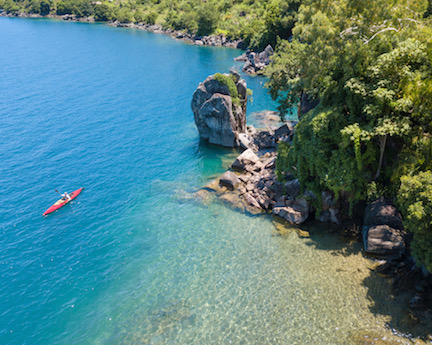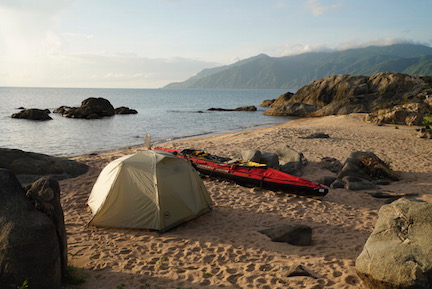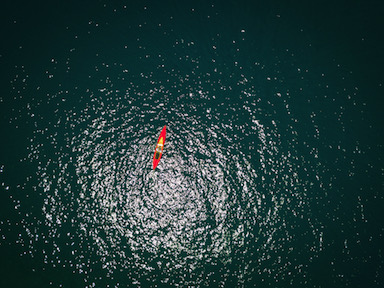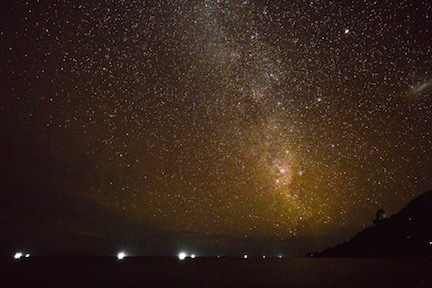I finished Lake Malawi and have moved on to Tanzania. I believe that my last check in was around Nkhata Bay, before I headed into the rugged and beautiful Viphya Mountain section of the lake. This area is incredibly beautiful, with mountains that drop a few thousand feet down to the lake and then extend more than 2,000 feet down underwater. It’s the deepest part of the lake and the water is clear and cool and a beautiful azure. Along this section, there are few beaches – the shoreline is mostly rocky. It’s also nice because the deep water and rocky shoreline mean that there are no crocodiles, hippos, or schistosoma.
The one challenge is that this area often experiences higher winds. The water can be quite rough and headwinds can be quite challenging. The typical routine was to keep my head down and paddle into a strong headwind from around 6 am to 12 or 1 pm, at which time the wind would calm down and I could enjoy the remaining afternoon of relative ease.
I think that this section, paddles over four to five days with a few rest days to hike and snorkel shows tremendous opportunity for a sea kayaking destination. The tourism would certainly benefit the local economy.
While I do feel a bit robbed of the wilderness experience of paddling the Mozambique/Tanzania side of the lake, it was quite rewarding for me to stay on the Malawi side where people speak English and I was able to freely communicate with the local people and learn about the lake and how they live.
Almost all of the people are dependent on the lake and the land around it for subsistence fishing and agriculture. Unfortunately, their practices are not sustainable, so I worry about the future of the lake without education and enforcement of fishing regulations. It’s a classic tragedy of the commons situation, where people are struggling to get by and therefore are taking as much of the available resources from the lake and land as they can. Almost half of the population is under 14, so the population is growing quickly and these problems will just be exacerbated.
Still, the people of Malawi were consistently kind and welcoming to me, and I really think that has earned its reputation as the “Warm Heart of Africa.”
My next lake will be Lake Tanganyika, the longest lake in the world and second largest by volume. It will also be considerably more remote than Lake Malawi, and there will be the added challenge of people only speaking Swahili. I’m looking forward to the challenge and wild beauty of the region though, and I’ll plan on updating you on my progress.
Here are some photos from the lake. The one of the stars is fishermen using lights to attract Lake Malawi sardines, called usipa. This nightly phenomenon prompted David Livingstone to dub Lake Malawi, the Lake of Stars.
I’d also like to add that my kayak continues to perform admirably. I found it to be consistently stable, durable, sporting an impressive payload, and fast considering all of those other factors. The boat is really adding to my confidence heading out into these lakes alone. Upon breaking down the boat at the end of the lake, I wasn’t able to find any wear or damage. Not bad for three weeks paddling in Africa!




